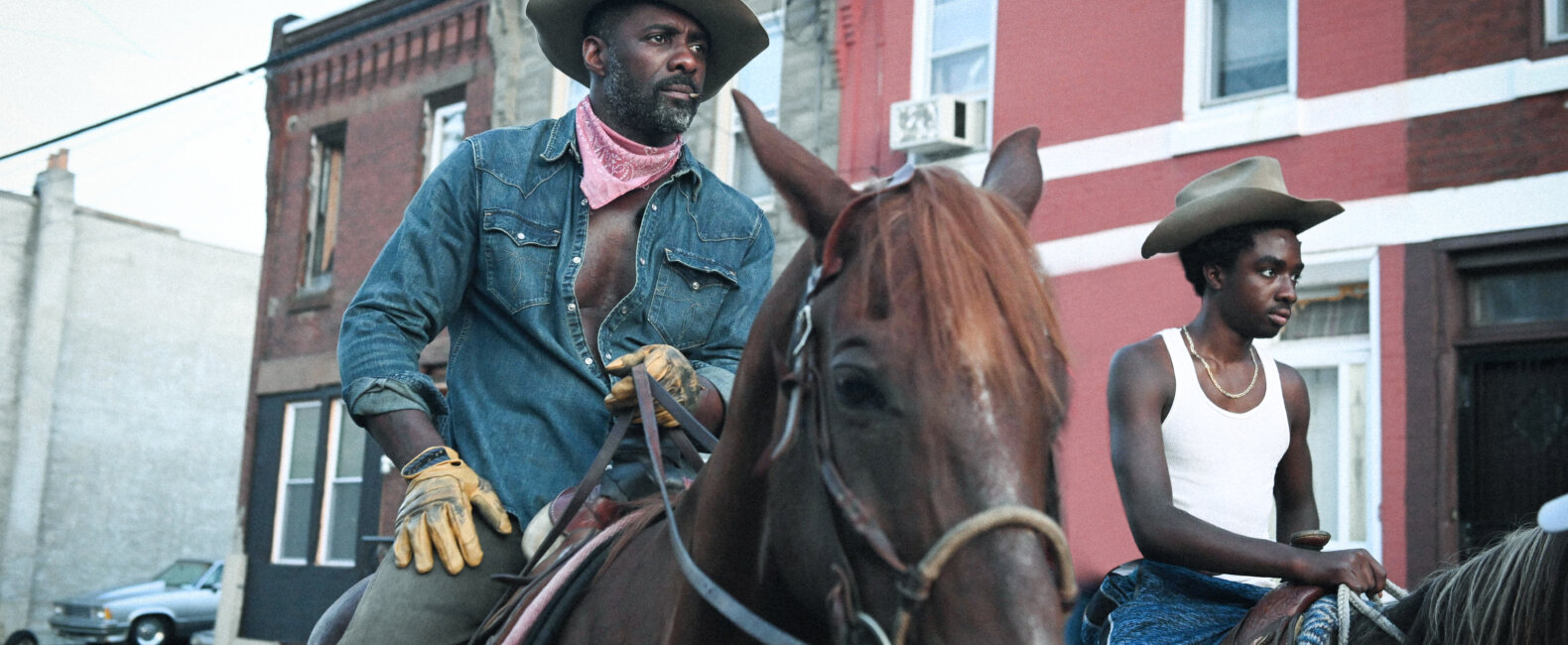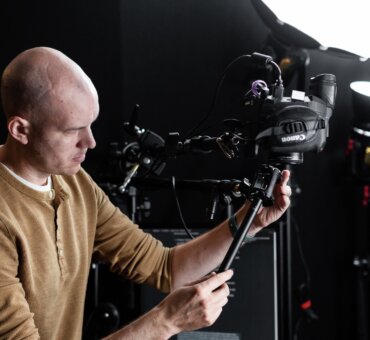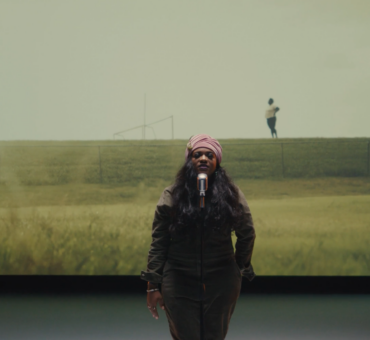Before we dive into this conversation, let’s set the scene for the discussion.
Director/Writer Ricky Staub and Producer/Writer Dan Walser are the founding team behind Neighborhood Film Co., a production team who recently released their first feature film Concrete Cowboy starring Idris Elba and Caleb McLaughlin. On the other side of the table, we have famed producers Jeff Waxman and Jen Madeloff, who besides producing Concrete Cowboy, have worked on Vice, John Wick: Chapter 3, Mother!, and dozens more.
Of course more important than their background is where they’ll be going together, and that’s the entire point of this discussion. Through some great choices (and maybe a little luck), this group has launched what will most likely be a years-long collaborative endeavor.
“The beauty is, after this film we’ll probably make all of our projects together,” Dan pointed out. “It’s such a battle to make a feature. And I can’t believe how much they believed in us. I don’t know why I would go into battle with anyone else.”
We had the chance to get all of them together to have a very pointed conversation about what you can do to put yourself in a similar situation. Finding a solid producer or team of producers is one of the most important steps you can take as a filmmaker, and these four have some great advice you can follow to get the ball rolling.
Here are Ricky Staub, Dan Walser, Jen Madeloff, and Jeff Waxman on what you can do to find your own “Jen and Jeff.” We talked to them at the tail end of the Toronto International Film Festival, as positive reviews for Concrete Cowboy were beginning to roll in.
How did all of you get connected?
Jeff Waxman: We met through Staci Hagenbaugh, a top-notch location manager who had always told us about these guys named Ricky and Dan. She said, “We just finished this short film called The Cage and you’ve got to check it out.” I was on the plane and I couldn’t get it downloaded, so I didn’t watch it. Then she yelled at me [laughs], so I went home and I watched it.
The short completely blew me away—everything about it, the artistry, the storytelling, it was an exceptional piece of work. And when Staci had told us that they made it for almost nothing, I’m thinking, “Who are these guys?” And, I’m not making any of this up, as soon as I finished it I called Jen, I said, “I’m picking you up in two hours. We’ve got to go meet these guys.” I drove down to Jersey. I picked up Jen. She had just watched the short.
Jen Madeloff: It was great. We see a lot of shorts and some of them are okay, or show you the promise of somebody coming into their own. But it was amazing on its own.
Jeff: We drove down and we met at a Mexican restaurant. They sat down and we started talking about the short and we asked them if they had any scripts. I’m already thinking these guys are super talented, they could tell a story, and I wondered if they could write. They said, “Yeah, we have seven of them.” And I think we asked them to pitch us all the scripts.
It seems like the short film is the catalyst to this whole thing.
Jeff: A note for filmmakers: A short film—producing it, directing it, or writing a script is the best way to get noticed. I watch commercials and they’re great, but I don’t typically look for commercials for talent. If you can either write or have a script or have done something narrative, that’s the best thing you could do.
Jen: And it’s five to 15 minutes, right? It’s not a huge time commitment. You can see so much about where somebody’s head is. Especially when you just get a script you don’t always know if they could take what’s on the page and bring the emotion.
Jeff: The other thing that attracted me was the team aspect, both Dan and Ricky. It’s very rare, and you could tell in two seconds they both made each other click. It wasn’t one-sided, like one guy was more talented than the other. If you talked to Dan about a script, he could talk his way through it with anyone.
So, we spent the next six months or a year working on the script and getting everything together. We went to LA, where Jen and I were producing Vice with Adam McKay. And I said, “While you’re here, you should get an agent. Do this right, you should meet with everyone.” Rich Cook is an agent at WME and he thought they were great and decided to sign them. Everything starts to feed off each other.
We gave them the script and Rich got them guys in a room with Idris Elba. Once we had Idris, it became a real project. We needed that anchor. We had the potential to be where we’re at now, which is exactly where we wanted to be.
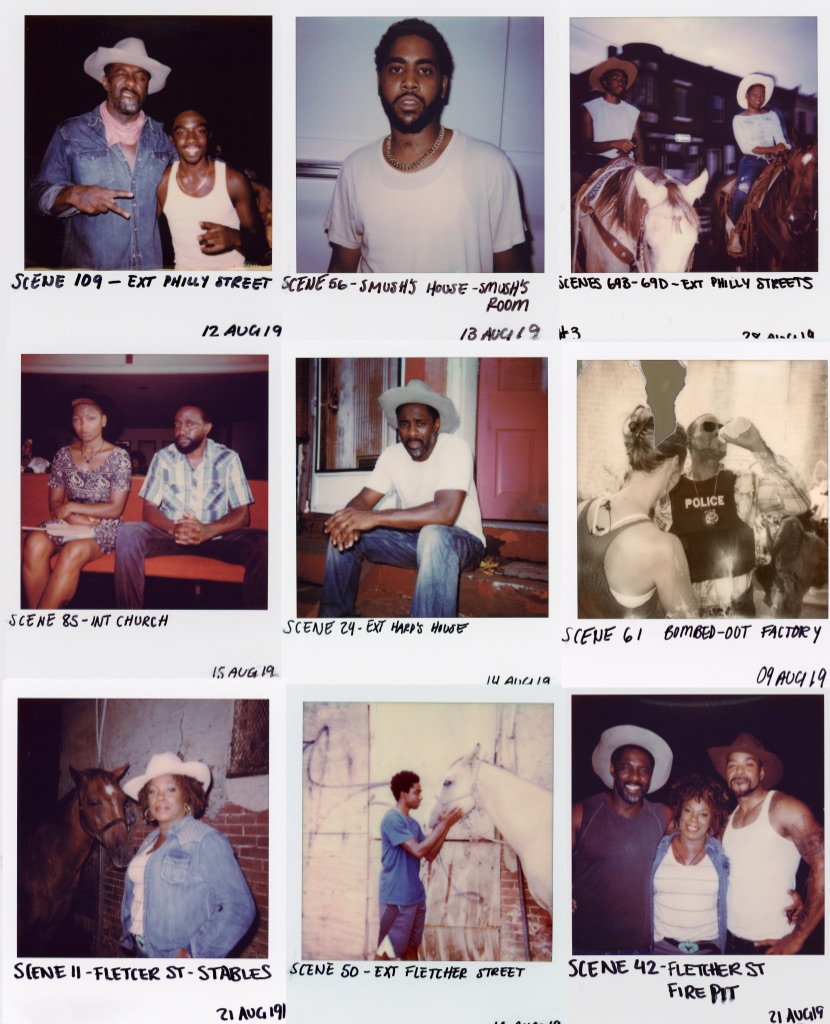
Jen, what made you feel so confident about working with Ricky and Dan?
Jen: A big part was their ability to get in a room with agents and talent and never falter. They can be confident and go with their gut. We knew right away they could get in a room with Idris or any actor and be confident in their viewpoint. They could be really focused and close the deal with actors, which is a really hard thing to do. That’s a talent that’s hard to learn.
Jeff: Even with experienced directors—and we work with many—a lot of them can’t close the deal. It may be a great movie, but to talk about it and explain it and get people excited about it is a skill. The meetings are something filmmakers don’t consider.
What were those meetings like for you, Ricky and Dan?
Ricky: Dan and I constantly are saying, “We don’t know what we don’t know.” Having Jeff and Jen who do know where we’re headed, and constantly being able to rely on them is incredibly important. When do we get this person involved? When do I take this type of meeting?
I do think Dan and I are good in a room, and I didn’t realize how important that is. When we’re sitting down with an actor, this moment could make or break the film. They already love your short, already love your script, but still haven’t agreed to do the movie. You have to make your pitch and feel confident. If you’re not comfortable with public speaking or being in that room, you’ve got to get good at it. I would have never imagined how important communicating our story and vision is to someone.
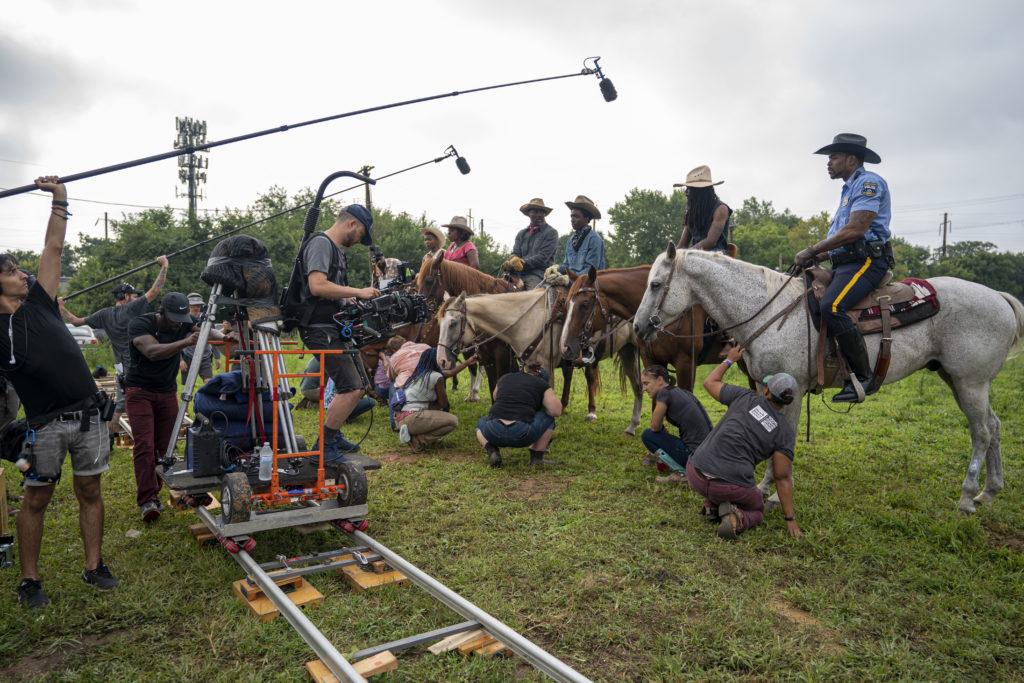
Dan, what’s something that you think helped in developing these relationships?
Dan Walser: One of the things that I think is important to understand is we’ve been writing scripts for 12 years up to the point where we met Jeff and Jen. We also had this key moment where we had to acknowledge that where we were going as commercial filmmakers was leading us to the top of the commercial pyramid—not to features, television, or more narrative.
I think some filmmakers who want to make features spend too much time making spec commercials and trying to grow their commercial career, thinking that if they get to a certain pinnacle of commercial filmmaking, it’s just a little bridge to walk over to the other end. It does happen, but not too often.
If you want to go the other route into narrative, spend your time making narrative content. And if you need to make commercials to have money, let it fund your narrative stuff. Start writing scripts and creating the framework for a short that requires you to have an arc, a full arc, and actual acting performances. I see a lot of filmmaking that’s very lyrical, which can be beautiful, but sometimes it all feels kind of the same. It’s very difficult for someone in Jeff and Jen’s position to look at that and say, “That is a director who has the confidence to sit in a narrative scene and make two actors give a raw performance.”
That’s an encouragement, I think, to young filmmakers, particularly who are trying to determine where they put their efforts in. Don’t wait to get into writing until you’ve arrived at some point in your career. Writing is such a hard hat, lunch-pail thing. It’s creative, but you just have to put the work in and write bad scripts before you can write good scripts. That really served us well. We were ready for the moment because we also had been working at it for a long time.
Jen: You guys brought a lot to the table.
Jeff: It was the perfect storm.
Ricky: It’s not like we were sitting there and had nothing to offer and they fed us like baby birds.
Dan: That’s a great point. For other filmmakers who are maybe ready to make that leap should look for their own Jeff and Jen. What I mean by that is, we met producers who had a ton of experience working for studios, but these two were looking to do something entrepreneurial themselves. We caught them at a moment in their career where they wanted to make a shift. It helps if you can find producers who are looking to develop things on their own.
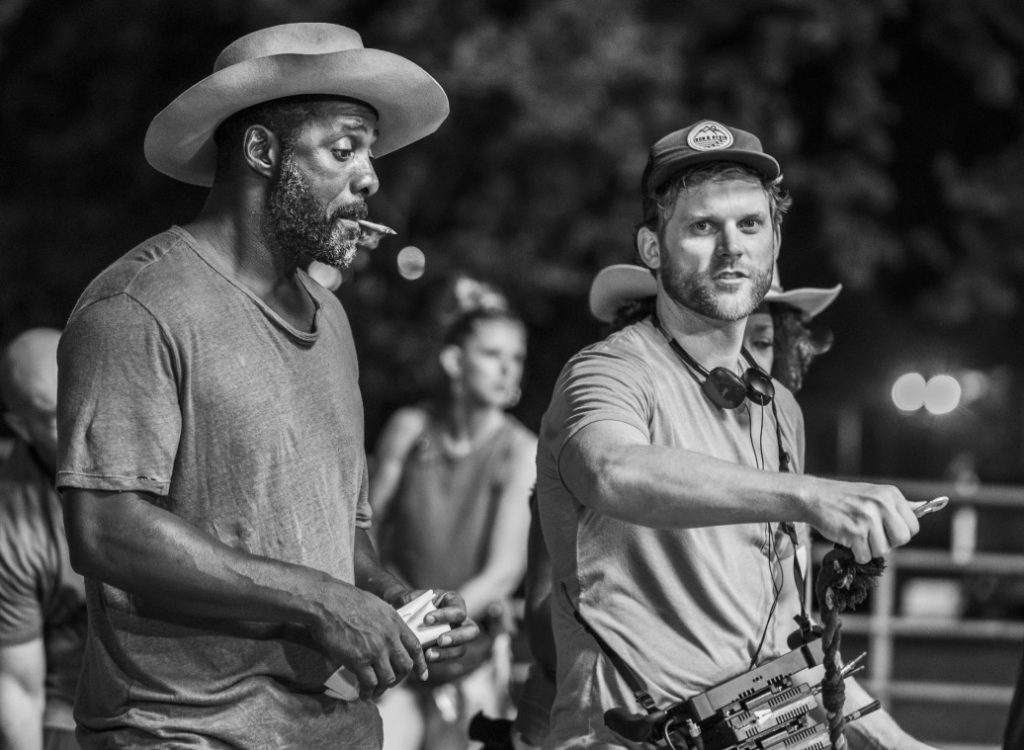
Writing seems like an asset that carries all the way through the production, too.
Ricky: You can be confident in the material. For example, with the actor meetings, they want to feel out how confident you are. I feel like they’ll even question the script to see how strong your backbone is. Not that you’re obstinate about your vision, you want to come off as collaborative, but I think they want to know that when the rubber meets the road you’re passionate because you have a point of view and you can execute it.
As a new filmmaker, you represent a lot of risks. That’s why people keep making movies after they’ve succeeded. If they’re good, they don’t represent a risk to studios, to financiers, to producers, and to other actors. At that point, you’re a known entity. Until that point, you have to help people understand that even though you’re new to this, they’re just helping you execute it. They don’t have to carry you on their back because of your inexperience. I think that’s a huge part of it.
Was there something specifically about this script and concept that helped things along?
Dan: I think what helped is that The Cage was such an easy comparison to the scripts we have waiting in the wings. Concrete Cowboy is like The Cage, just add horses. The gap was a lot smaller for people. For Idris, or for anyone who read the script, they could see the movie. It’d be helpful for a young filmmaker to have a short and then a feature script that can build off of it. It doesn’t have to be the exact same, but I remember our agent saw the short film and then read our scripts. He said, “I see the path.” We gave him the pieces to play with, you know?
I think that’s an important factor that we didn’t know until now. I find a lot of filmmakers are just sitting there waiting for an agent to do all the work for them, or producers, but it’s not going to happen. We had done ourselves a favor and we didn’t know it. We were keeping our scripts and everything cohesive and coalescing together. If we had a hundred million dollar big action movie, people wouldn’t know what to do with it.
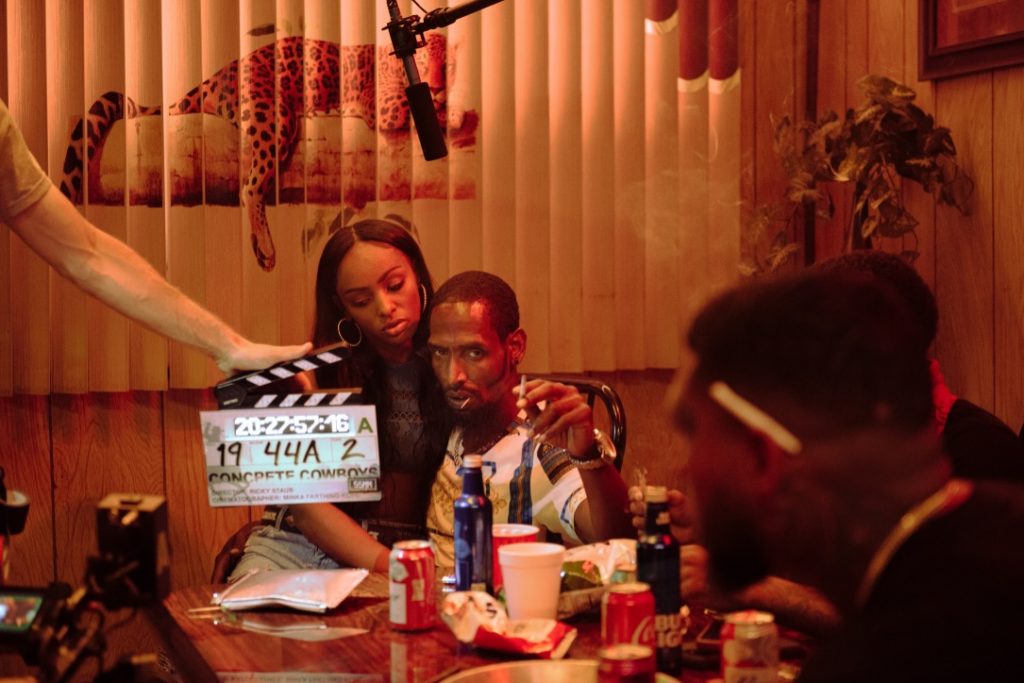
Plus, you really care about the subject matter.
Jen: I think you should focus on what you’re passionate about or what you really feel strongly about, as opposed to trying to do something that you think will impress producers. Do something that you feel really confident and strong about. Do it with emotion and do it with acting, not gimmicks. It’s better to be really raw and emotional.
Jeff: Right. The only other thing we’re not talking about, which I think is important, is that Ricky and Dan are two exceptional human beings. It made you want to work with them. Just from being completely straight shooters, it made you feel good to do whatever you could do to help them. I never had a doubt we were going to be where we are now. I knew it from the first second I saw the short and now I know what’s going to happen in the next five years. I can see it, and it’s exciting.
Congratulations to Ricky and the whole crew for Concrete Cowboy’s Netflix acquisition for a 2021 release!
For more on producing great content, read our conversation with the Park Stories team as they reflect on talent casting, producing, and overcoming obstacles to create a brand-new short film series for Quibi’s launch.















































































